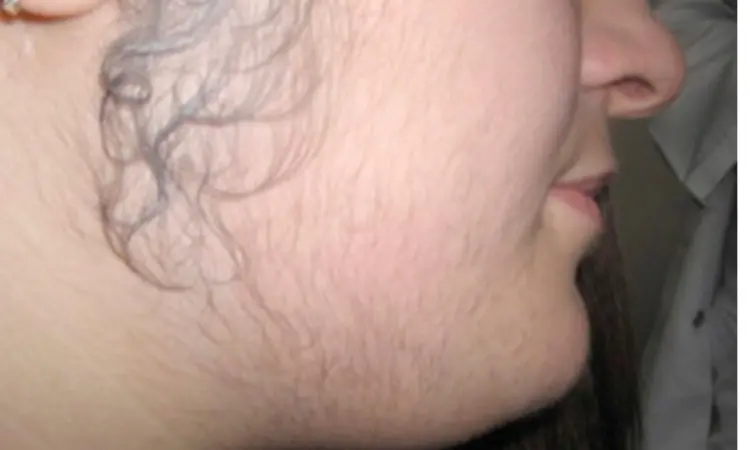- Home
- Medical news & Guidelines
- Anesthesiology
- Cardiology and CTVS
- Critical Care
- Dentistry
- Dermatology
- Diabetes and Endocrinology
- ENT
- Gastroenterology
- Medicine
- Nephrology
- Neurology
- Obstretics-Gynaecology
- Oncology
- Ophthalmology
- Orthopaedics
- Pediatrics-Neonatology
- Psychiatry
- Pulmonology
- Radiology
- Surgery
- Urology
- Laboratory Medicine
- Diet
- Nursing
- Paramedical
- Physiotherapy
- Health news
- Fact Check
- Bone Health Fact Check
- Brain Health Fact Check
- Cancer Related Fact Check
- Child Care Fact Check
- Dental and oral health fact check
- Diabetes and metabolic health fact check
- Diet and Nutrition Fact Check
- Eye and ENT Care Fact Check
- Fitness fact check
- Gut health fact check
- Heart health fact check
- Kidney health fact check
- Medical education fact check
- Men's health fact check
- Respiratory fact check
- Skin and hair care fact check
- Vaccine and Immunization fact check
- Women's health fact check
- AYUSH
- State News
- Andaman and Nicobar Islands
- Andhra Pradesh
- Arunachal Pradesh
- Assam
- Bihar
- Chandigarh
- Chattisgarh
- Dadra and Nagar Haveli
- Daman and Diu
- Delhi
- Goa
- Gujarat
- Haryana
- Himachal Pradesh
- Jammu & Kashmir
- Jharkhand
- Karnataka
- Kerala
- Ladakh
- Lakshadweep
- Madhya Pradesh
- Maharashtra
- Manipur
- Meghalaya
- Mizoram
- Nagaland
- Odisha
- Puducherry
- Punjab
- Rajasthan
- Sikkim
- Tamil Nadu
- Telangana
- Tripura
- Uttar Pradesh
- Uttrakhand
- West Bengal
- Medical Education
- Industry
Bicalutamide may reduce minoxidil-induced hypertrichosis in female pattern hair loss: Study

Australia: A recent study has in the Journal of the American Academy of Dermatology has suggested that the addition of bicalutamide to oral minoxidil may improve minoxidil–induced hypertrichosis.
The combination of low-dose systemic minoxidil with antiandrogen therapy has been used for the treatment of female pattern hair loss (FPHL). Although minoxidil is shown to have a favorable safety profile, hypertrichosis occurs in up to 24% of patients. Bicalutamide is a pure, non-steroidal androgen receptor inhibitor that has been successfully used for FPHL treatment. Low-dose bicalutamide (25mg/daily) has also been used to treat moderate to severe hirsutism with significant efficacy.
Against the above background, Anthony Moussa, Sinclair Dermatology, Melbourne, Victoria, Australia, and colleagues aimed to determine whether oral bicalutamide decreases the risk of minoxidil-induced hypertrichosis.
For this purpose, the researchers retrospectively reviewed the records of all FPHL patients at their institution with minoxidil-induced hypertrichosis that was concurrently treated with oral bicalutamide between May 2016 and May 2021. Those treated with laser hair removal, electrolysis, depilatory creams, or concomitant drugs with antiandrogen potential (eg, drospirenone, spironolactone, finasteride, or dutasteride) were excluded from the review.
Using a clinician assessment, review of photography and subjective reporting by patients, improvement in hypertrichosis was determined.
Following were the study's key findings:
- The authors identified 35 patients with female pattern hair loss who experienced improvement of oral minoxidil–induced hypertrichosis after starting or up-titrating the dose of oral bicalutamide.
- Hypertrichosis occurred at a mean dose of 1.5 mg/day of minoxidil (range, 0.25–5 mg). All patients started bicalutamide at 10 mg/day.
- The mean dose that resulted in improvement of hypertrichosis was 14.4 mg/day after a mean of 3.4 months of treatment.
"Oral bicalutamide appears to be beneficial in mitigating hypertrichosis caused by minoxidil in FPHL patients," wrote the authors. "Daily bicalutamide (mean dose, 14.4 mg) both reduced hypertrichosis and permitted an increase in the mean dosing of minoxidil by 0.7 mg/day without further hypertrichosis."
Reference:
The research titled, "Bicalutamide improves minoxidil-induced hypertrichosis in female pattern hair loss: A retrospective review of 35 patients," is published in the Journal of the American Academy of Dermatology.
DOI: https://www.jaad.org/article/S0190-9622(21)02738-9/fulltext
Dr Kamal Kant Kohli-MBBS, DTCD- a chest specialist with more than 30 years of practice and a flair for writing clinical articles, Dr Kamal Kant Kohli joined Medical Dialogues as a Chief Editor of Medical News. Besides writing articles, as an editor, he proofreads and verifies all the medical content published on Medical Dialogues including those coming from journals, studies,medical conferences,guidelines etc. Email: drkohli@medicaldialogues.in. Contact no. 011-43720751


